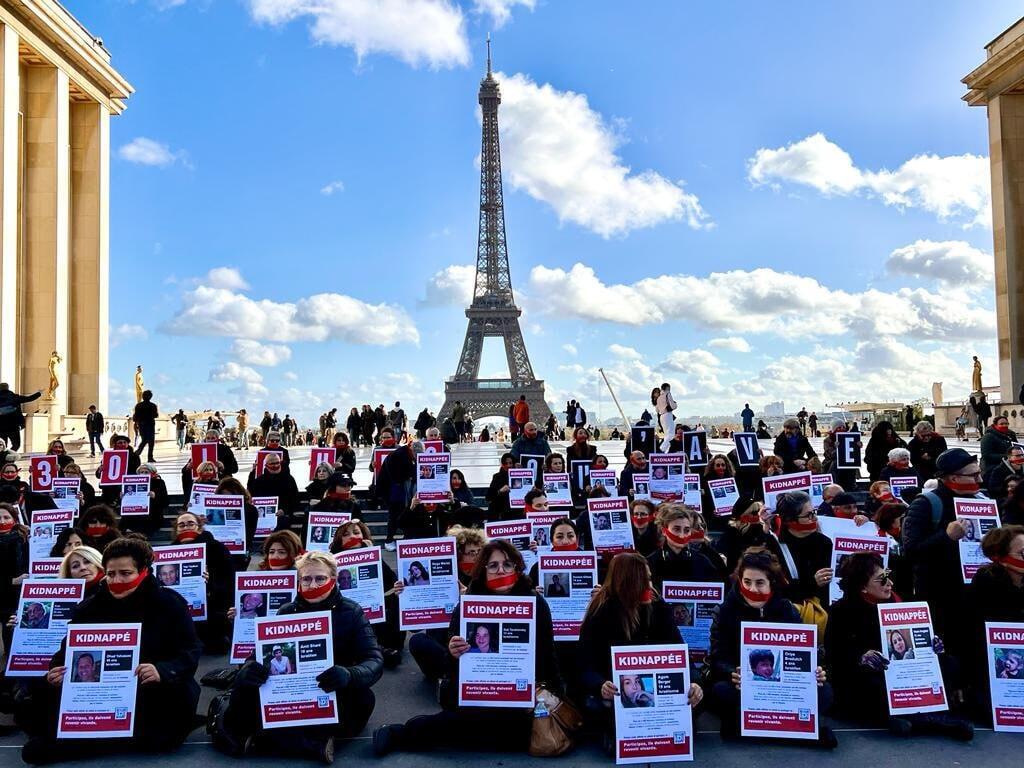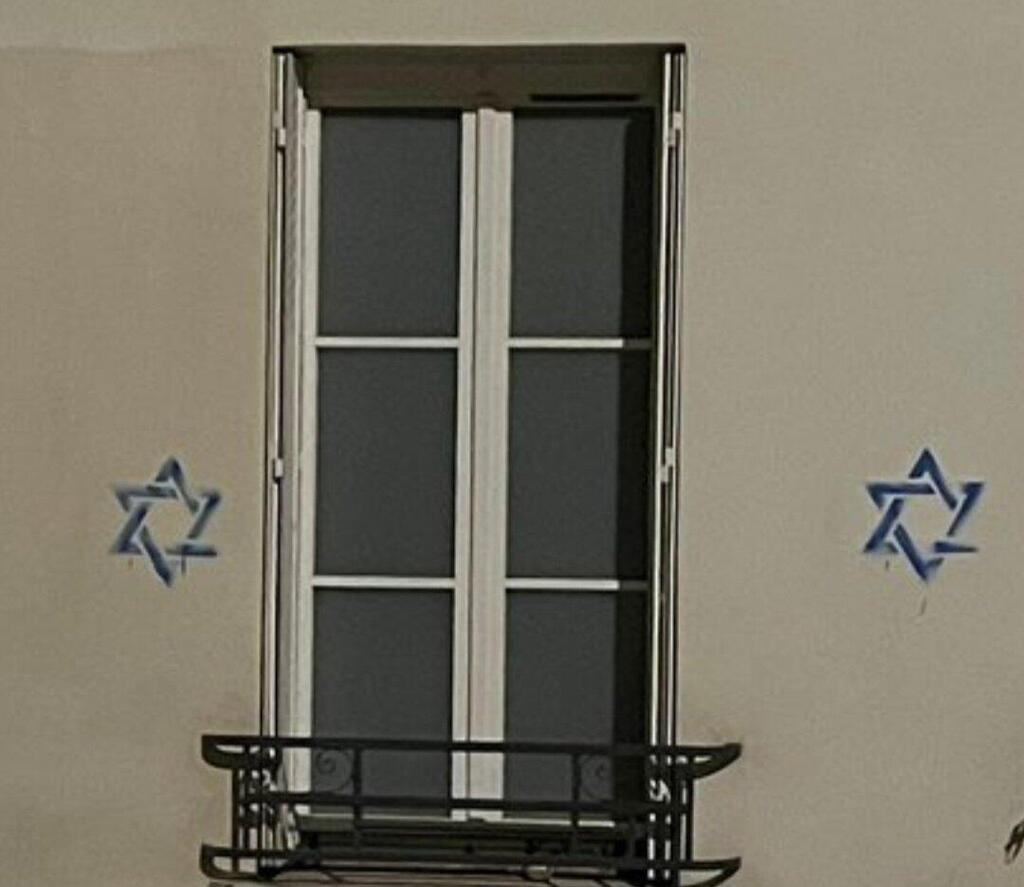The world is currently going through a profound transformation unfolding right in front of us. Following October 7, a significant process of evolution has been set in motion. Throughout history, while Jews have faced their fair share of challenges, they have managed to find a few places in the Diaspora that offered a sense of safety.
Read more:
However, even those once-secure havens now present their own risks. This unsettling reality has created a pervasive feeling of insecurity, particularly regarding openly identifying oneself as a Jew. It appears that the geographical location in question matters little in this regard.
Jews living outside of Israel find themselves caught in a web of complexity and uncertainty. They grapple with a profound dilemma: Should they uproot their lives and embark on a journey to Israel, their ancestral homeland? This question weighs heavily on their minds as they contemplate leaving behind their homes and communities.
Gael Grunewald, Deputy Chairman of the World Zionist Organization, offers a resolute perspective on this matter. Having personally made the courageous decision to move from France to Israel at a young age, he says the answer is a resounding yes.
"I was on a work tour in France. What I saw there was an extremely hostile atmosphere. I met deeply discouraged Jewish students who have even been isolated since October 7th. They have non-Jewish friends who have cut off contact with them, and there are Jews who have removed mezuzahs from their doorposts," he describes. "These are not just stories; these are things that truly happen every day. In my childhood, I used to walk on the streets of Paris wearing a kippah. It wasn't always pleasant, but it was possible. Today, with the anti-Semitic sentiments and the number of Muslims residing in the country, it is simply impossible to identify as a Jew in public."
So what's the next step?
"We have approximately half a million Jews in France, and they need to contemplate their future. In the past, there was a prevailing sense of aliyah, particularly in the 1950s, but also in the 1970s and even the 1990s, fostering a connection. Departing from Paris, New York, or London in favor of a country that appeared comparatively underdeveloped was a feasible choice. However, things have changed today. Israel is a robust, modern nation in every aspect. As you stroll through Tel Aviv, Jerusalem, and numerous other places, there is no cause for embarrassment. I believe we are at a crucial juncture: an opportunity to bring a substantial number of immigrants to a thriving and resilient Jewish homeland."
After October 7, sense of security in Israel is not particularly high either.
"It is impossible to deny the facts and what happened. We experienced a tragedy. On the other hand, there is also the aspect of daily life and the feeling you have every time you go out to the street, go to the synagogue, or take the children to the Jewish school.
If you want to live as a Jew without limitations or concerns, Israel is a better place than France. Our Jewish life is of utmost value. Living constantly with a sense of fear or apprehension, every time you do something, is a common occurrence in France today. It is a deeply distressing experience to live like this on a daily basis.
In Israel, there is no requirement to hide Jewish symbols in public spaces, and that makes a significant difference. Israel and the Jewish Diaspora both suffered a severe blow, but there is one difference: Israel stood up to defend itself, and the IDF operates continuously. In the Diaspora, there is no IDF to protect or respond."
French Diaspora eager to pick oranges
Ariel Kendel, chairperson of Qualite, an organization that acclimated French Jews in Israel, says: "We have an immediate potential of 10,000 immigrants this summer, and there is a lot of interest among people who attended the fair. By providing support and assistance in the immigration process, we can encourage them to come to Israel. In the relatively near term, we estimate a potential of 50,000 immigrants.
"During the fair, we encountered many Jews who are exhausted by the situation in France. The daily mental strain is taking its toll, with incidents of cursing, spitting, and vandalism targeting Jewish individuals and properties becoming increasingly common. People have reached their breaking point and can no longer tolerate this environment. This feeling has been building up for years, and now, more than ever, it is evident that they need to leave."
According to Kendel, "They saw the mobilization and the unity and the donations, and they are just mad that they are not part of it. They want so much to be here, to do something, pick oranges, prepare food for the soldiers, and that drives them crazy that they can't be part of the effort."
What stops them from coming now?
"First and foremost is the cost of living. The gap between Israel and France is significant. People are requesting that Israel support them throughout the process, assisting with bureaucracy, finding employment opportunities, and housing solutions. With genuine assistance and a comprehensive support project, we can achieve our goal and realize the full potential of attracting 10,000 immigrants. However, if we fail to make the necessary effort, we risk missing out and only seeing 2,000 arrivals instead of the desired number in the summer."
The war doesn't scare them?
"I didn't sense fear from them, but rather a sense of sadness for what happened and empathy for the victims of the war. It's an intriguing psychological phenomenon - they express to me that in Israel, they will finally feel a sense of belonging and security. They are more fearful on the streets of France than they would be while evading missiles in Ashkelon. It's truly remarkable."
"The economic aspect is a significant challenge," explains Grunewald. "Therefore, the State of Israel must make a substantial effort to address this issue. The state has a vested interest in investing in this matter. Not only does each immigrant contribute to the state's income through taxes and consumption, but there is also a strong desire to bring in more Jews and further develop the country. The key lies in a comprehensive plan that encompasses three crucial elements: housing, employment, and Hebrew language studies. While we are currently in the midst of a war, it is essential to prioritize this plan once the conflict subsides. There is a tremendous opportunity here for significant progress."
Of course, we want to see Jews coming, but at this difficult time, shouldn't we move our resources to those already here?
"We can walk and chew gum at the same time. Throughout our history, we have faced significant obstacles and managed to succeed, even during difficult times. Now, we are facing a new challenge, and I am confident that we will rise to the occasion. As the State of Israel, we are a country that welcomes everyone, and I want all of them to come here."
Grunewald suggests that there is a potential for a million immigrants in the coming years, although it is unlikely that they will all arrive on a single day. He explains, "I foresee this as a gradual process spanning several years. It is important to acknowledge that the Jewish communities in France and the United States have experienced significant setbacks. Some individuals may respond quickly, while others may take more time to consider and prepare for the move. However, a considerable number of people in these communities are contemplating immigration and laying the groundwork for it. We have already witnessed a significant increase in immigration cases being opened in these communities."
The South African angle
Another segment of the Diaspora Jewry that Grunewald focuses on comprises Israelis who have left the country over the years and relocated to live abroad. Current estimates suggest that there are approximately one million Israelis dispersed worldwide, with a significant number residing in the USA and Canada. He explains, "There was a time when Israel did not recognize them and even abandoned them, but those times are in the past. While they made the decision to leave at some point, our task is to assist them if they desire to return and make the process as smooth as possible. They will find it much easier to integrate here compared to new immigrants, as they are already familiar with the language, culture, and have existing connections with family and friends in Israel."
One of the notable stories emerging from the Diaspora in recent times revolves around a community in South Africa. This community consists of approximately 50,000 Jews who find themselves residing in a country that is increasingly adopting a radical stance toward Israel. Some political factions there even advocate for severing all ties with Israel. According to Grunewald, this situation poses a challenging dilemma for the community, as they contemplate the future of Jewish life in the country.
Grunewald explains, "In my assessment, a significant portion of the community is considering their next steps. The question now is whether they will contemplate moving to Israel or another English-speaking country, such as Australia, for instance. The answer to this question also depends on Israel's actions and how much effort it will exert to support and assist these potential immigrants."
Helping Olim is great, but what about present-day Israelis? Shouldn't we help them first?
"It is evident to me that young couples in Israel face various challenges. However, it is our responsibility not only to support them internally but also to assist those who wish to come to Israel. This is the fundamental purpose of the State of Israel: to serve as a homeland for the Jewish people, and we must always keep this in mind."
Do you think we're still an attractive destination, with all our war and financial problems?
"Yes, absolutely! I frequently travel to various countries, and I firmly believe that Israel is just as appealing as any other place. Living in Ra'anana, for instance, can be just as enjoyable as residing in a Parisian suburb where one may feel apprehensive about openly wearing a kippah. Are we lacking in terms of employment opportunities or quality of life? Of course, no place is perfect. However, Israel is a remarkable country with numerous positive attributes."
 Gael GrunewaldPhoto: Rami Zerenger
Gael GrunewaldPhoto: Rami ZerengerSo we're really gonna see a million Olim in the next few years?
"I'm no prophet and I doubt anyone can make that sort of a commitment within that time frame, but I know this - Diaspora Jewry are very interested. Much of this obviously depends on how Israel responds and the steps that will be taken to facilitate a smoother process for those considering Aliyah. Government Ministries are also attentive to this, and hopefully, once the war concludes, we can implement some real steps. We can't pass an opportunity like this up."







